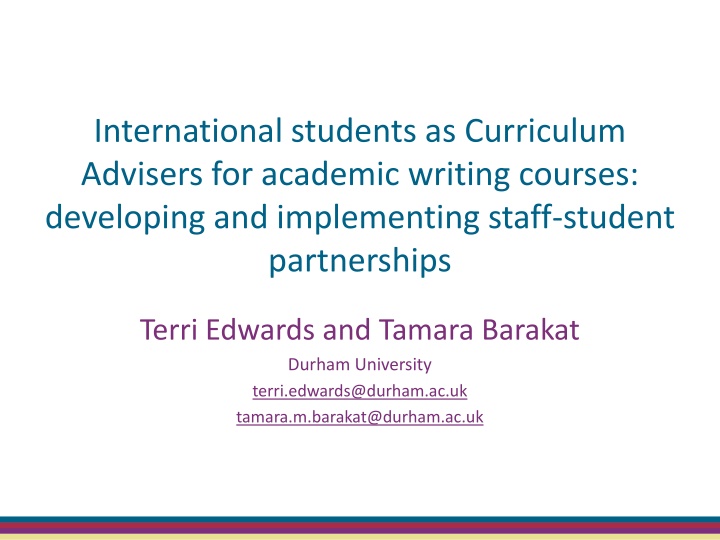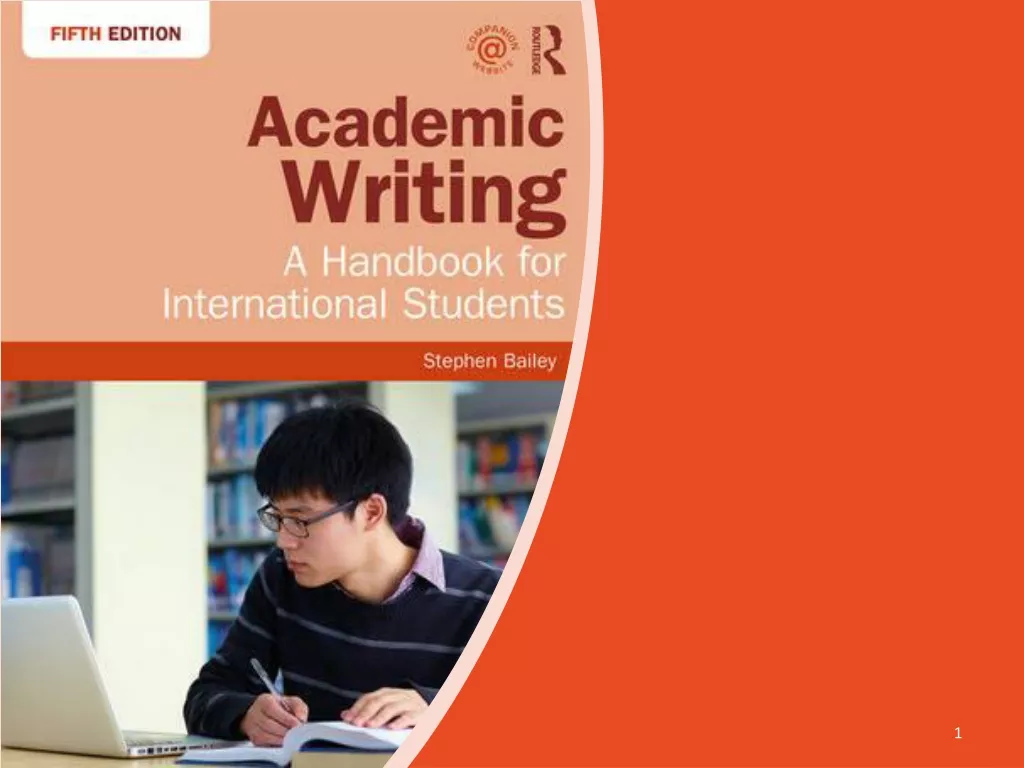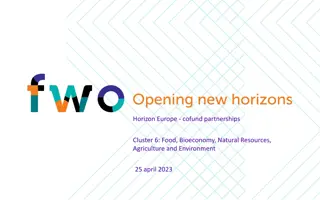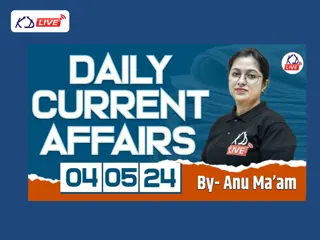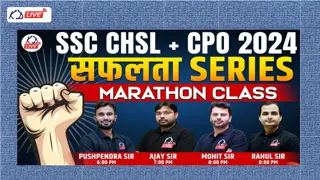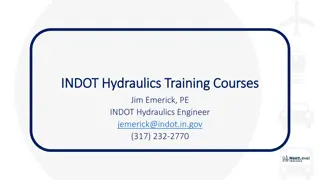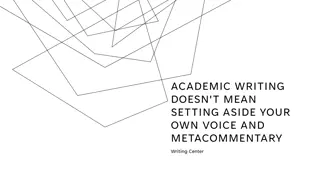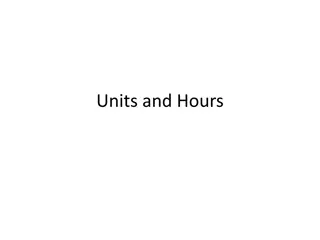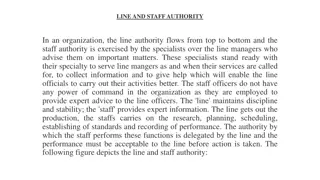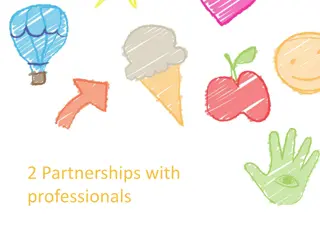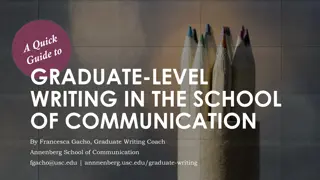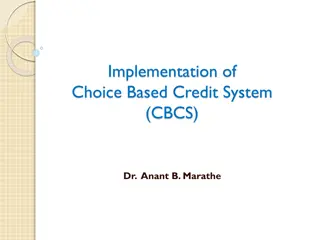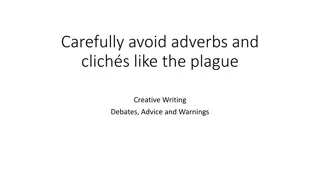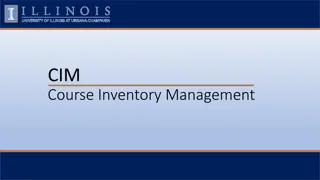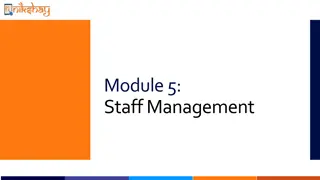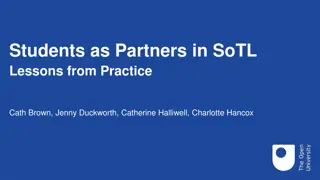Developing Student-Staff Partnerships in Academic Writing Courses
The article discusses the implementation of staff-student partnerships in academic writing courses by using international students as curriculum advisers at Durham University's English Language Centre. It explores the benefits of learner-centeredness, the importance of meeting student needs in EAP, and challenges in curriculum design. The narrative questions the deficit model of international students and emphasizes the cultural capital they bring to the academic environment. The focus is on addressing the discourse of Othering in higher education and fostering inclusive educational practices.
Download Presentation

Please find below an Image/Link to download the presentation.
The content on the website is provided AS IS for your information and personal use only. It may not be sold, licensed, or shared on other websites without obtaining consent from the author.If you encounter any issues during the download, it is possible that the publisher has removed the file from their server.
You are allowed to download the files provided on this website for personal or commercial use, subject to the condition that they are used lawfully. All files are the property of their respective owners.
The content on the website is provided AS IS for your information and personal use only. It may not be sold, licensed, or shared on other websites without obtaining consent from the author.
E N D
Presentation Transcript
International students as Curriculum Advisers for academic writing courses: developing and implementing staff-student partnerships Terri Edwards and Tamara Barakat Durham University terri.edwards@durham.ac.uk tamara.m.barakat@durham.ac.uk
INTRODUCTION Tamara Barakat Terri Edwards MA Arabic/English Translation and Interpreting, Durham University Teacher of The Academic Writing Workshop, In-sessional, DUELC
Context: Durham University English Language Centre: supporting international students all year round Summer Pre-sessional 500 students/year In-sessional courses free, open to all classes from 2 to 200 Some discipline-specific courses (Law, Psychology, Business) One-to-one consultations (more than 1,000 last academic year) We collect feedback (online and written) We have staff-student consultancy committees (SSCCs) We run a focus group each term for the In-sessional programme BUT at no point do we ever ask students what they need/want to study
This is very odd(at least to Terri) ELT: the importance of learner-centredness ESP: the customers get what they need/want EAP: Literature insists on primacy of needs analysis (see e.g. Hyland & Shaw, 2016) BUT Top-down ethos of HE students as novices The deficit model of international students
A discourse of Othering? (Said, 1978) HE and EAP pedagogy take little/no account of the cultural capital that international students bring to the academy (Bourdieu, 1990; 1998), such as: Prior disciplinary knowledge/cross-disciplinary knowledge Professional knowledge (jobs/internships/volunteer work) Technological expertise ( digital natives Prensky, 2001) Linguistic expertise (love of language for its own sake ) Cultural expertise/travel/exchanges ALSO: Disciplinary and genre writing expertise (developed at the UK uni) This can be particularly be seen at UG third year, Master s second term onwards, PhD after second year review
Problems with EGAP curriculum design ELC staff can t be expert in every discipline, but have to cater for all Faculty are often too busy to see us or work with us in a sustained way Students change (more sophisticated!) Courses get stale (Brooman, Darwent & Pimor, 2015) Students have always been Terri s best expert informants, materials providers and active assistants
So a staff-student partnership project was born Exploratory study: three UG 3rd-year students critiqued the same set of materials (main handout and lecture slides) from a no-stakes course: The Academic Writing Workshop Terri read up on the staff-student partnership literature Terri, with help from ELC teachers Michelle Joubert, Clare Carr, and Finance Officer Tracy Reith, applied for and got a small amount of funding from UKCISA for a Pilot Project
Evolving methods: what we have done so far Reflection on the Academic Writing Workshop Evaluation and review of same set of materials Interviews talk around text Review of academic writing book Evaluation and review of another set of materials, chosen by ourselves Created a Facebook group and a Dropbox folder
Whats next? Attending and evaluating a session Running a focus group discussing the project together Running another round of semi-structured interviews (Curriculum Advisers individual reactions) Developing and trialing the materials in the next academic year
Significance actively explore an issue empowerment altruistic values active agents of change personal, academic and professional skills creative It is exciting! power to co-create opportunity to be heard a meaningful project trust, faith, and appreciation in student abilities
Research & Teaching Implications 1) This process works, and it s fun! 2) International students bring insights to the curriculum that we don t have 3) The process doesn t have to be time- consuming unless you re doing this as research 4) Staff-student partnerships are beneficial to teachers, students and institutions
If you want to try it yourself Picture source: amazon.co.uk
References Bourdieu, P. (1990). The Logic of Practice. Stanford: Stanford University Press. Bourdieu, P. (1998). Practical Reason: On the Theory of Action. Stanford: Stanford University Press. Brooman, S.; Darwent, S. and Pimor, A. (2015). The student voice in Higher Education curriculum development: is there value in listening? Teaching International, 52(6), 663-674. Cook-Sather, A., Bovill, C., and Felten, P. (2014). Engaging students as partners in learning and teaching: a guide for faculty. San Francisco: Jossey Bass. Hyland, K. (2016). General and Specific EAP. In: K. Hyland and Shaw, P. (Eds.) The Routledge Handbook of English for Academic Purposes. London & New York: Routledge, 17-29. Little, S. (Ed.) (2011). Staff-student partnerships in Higher Education. London & New York: Continuum. Prensky, M. (2001). Digital natives, digital immigrants. In On the horizon. Bingley: MCB University Press, 9(5). Said, E. (1978). Orientalism. London: Penguin.
